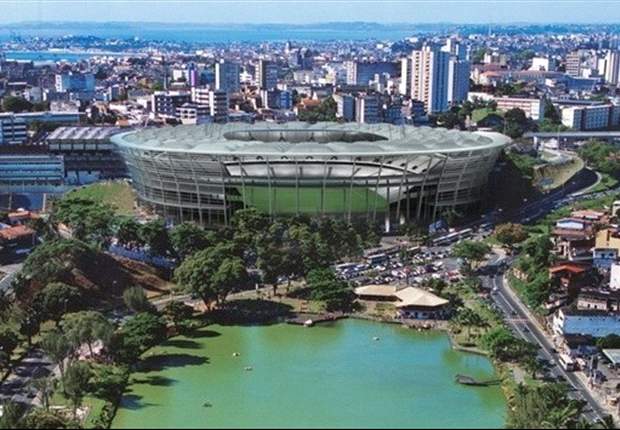By Paul Nicholson in Rio
Against a backdrop of persistent public protests over the expense of staging the 2014 World Cup, FIFA general secretary Jerome Valcke has defended Brazil’s investment by saying it will be of benefit long after the event.
Speaking at the end of the one-day FT/IFA Business of Football Summit in Rio de Janeiro, Valcke reacted to Brazilian media criticism and the demonstrations by saying that “the investment remains beyond the World Cup. It will create a change. The World Cup is just a kick off time for these investments. It is a reason for investment in the country.”
Protesters have timed their campaign to co-incide with the Confederations Cup, the World Cup warmup tournament, questioning the more than R$30 billion ($3.3 billion) the government has spent on preparations, money which they say should have been spent on social infrastructure like health care and education.
In Rio, the protests have been about the huge hike in bus fares. The government had initially said that the infrastructure build would be financed by the private sector rather than from the public purse.
But Valcke told the FT/IFA audience: “We need a big setting for the opening ceremony and the final. The rest is up to the country to provide at their discretion. FIFA is not asking countries to host the World Cup, countries are bidding for it. We issue a tender and that has requirements. We have asked for new technology to be included, that is true. But there seems to be this feeling that when it is for the FIFA it is always bad. Building and renovating stadia and upgrading infrastructure needs large sums of money and a big workforce.”
Valcke then went on to outline some of the economic benefits projected for the World Cup in Brazil. Estimates have put a figure of more than R$140 billion being injected into the Brazilian economy between 2010 and 2014; the creation of 3.63 million jobs per year; more than R$60 billion of income for the Brazilian population; and an anticipated influx of 3 million extra visitors providing nearly R$6 billion in income for Brazilian companies.
There is also the benefit to Brand Brazil and its image. The South African World Cup in 2010 changed the image of that country in the eyes of the world. Of the visitors attending the event, eight out of ten said they would return in the future.
Valcke also reported that match days at the Confederations Cup had gone to plan with no significant problems so far. “We have had three great games in three different stadiums (the Nigeria vs Tahiti match was being played while he was speaking) and all went well.”
Brasilia, much criticised for the cost and scale of build in a city not regarded as a hotbed of Brazilian football, will be the first stadium to have a ‘green’ certificate for use of sustainable technologies. Valke ranked the stadium “definitely in the top 10 in the world”. He also reported that the Sao Paulo stadium will be finished on time.

